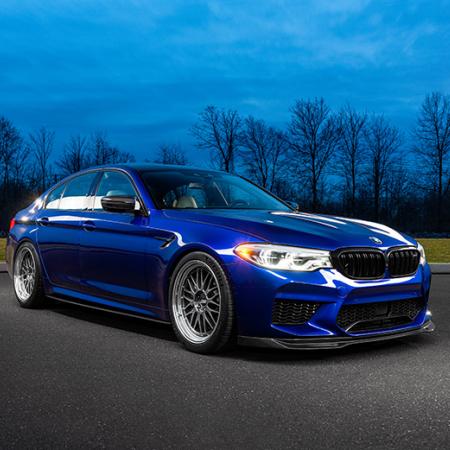Even as BMW posted its first year-over-year sales decline in more than two years, it still managed to outsell Mercedes-Benz in the U.S. last month, narrowing the distance between the two competitors to only 104 new car deliveries for the year.
BMW's U.S. sales fell 0.5 percent last month from a year earlier to 21,297, the Munich-based automaker said Friday in a statement. Mercedes sold 19,311 cars and SUVs last month, a 1.6 percent gain, while Toyota Motor Corp.'s Lexus sales rose 25 percent to 18,235.
"High summer is typically a time for vacations rather than car buying, which makes the July result satisfying, especially with the unsteady economy and the very short supply of new models in our dealerships," Ludwig Willisch, head of BMW's U.S. unit, said in the statement.
Mercedes U.S. sales through the first seven months of the year rose 14 percent to 147,905, according to the Stuttgart, Germany-based automaker. BMW, which overtook Lexus last year to become the top-selling luxury brand in the U.S., sold 147,801 through July, a 9.4-percent gain. BMW beat Mercedes last year by 2,715 deliveries.
Prior to July, Mercedes led BMW by more than 2,000 U.S. deliveries for the year.
The sales results don't include Daimler's cargo vans and Smart cars and BMW's Mini brand, which aren't luxury vehicles.
Targeting repeat
Willisch has predicted that the brand will again finish No. 1 following the introduction of the redesigned 3 Series sedan. Sales of the compact car line fell 11 percent in July to 7,653. The automaker may see a sales boost later this year when it introduces the all-wheel-drive version. All-wheel-drive 3 Series cars are being made for sale starting in September, he said.
The last time BMW had a year-over-year sales decline in the U.S. was in May 2010 when the company had limited availability of the 5 Series and X3 sport-utility vehicle before redesigned versions arrived at dealerships.
Incentives reduced
BMW pulled back in incentive spending during July, according to estimates by TrueCar.com, a website that tracks auto sales. BMW's average incentive spending fell 18 percent last month from a year earlier to $3,248 per vehicle while Mercedes spending rose 29 percent to $4,096.
BMW and Mercedes are both facing better challenges from rivals in the luxury segment since vaulting into the No. 1 and No. 2 positions last year after Toyota struggled with production issues following natural disasters in Asia.
"Competition is a big part of it even though people don't necessarily directly cross-shop Cadillac to BMW," said Jesse Toprak, an industry analyst with TrueCar.com, referring to General Motors Co.'s luxury brand. Cadillac sales rose 21 percent to 13,417 vehicles in July, the Detroit-based automaker said in a statement.
Through seven months, Lexus sales gained 23 percent to 126,367. Toyota has targeted a 25 percent increase to 250,000 vehicles this year. The brand may gain sales from the new ES sedan and RX crossover.
Audi, Acura
U.S. sales of Volkswagen AG's Audi brand rose 28 percent last month to 11,707, the company said in a statement. Porsche AG, the Stuttgart-based automaker that is now part of VW, sold 2,803 vehicles in the U.S. last month, a 1.3 percent increase, the company said in a statement.
Sales of Honda Motor Co.'s Acura brand rose 36 percent to 12,825 last month, the company said in a statement.
Ford Motor Co. sold 6,975 Lincolns in July, an 11 percent decline from a year earlier, according to a statement from the Dearborn-based automaker.
Jaguar Land Rover deliveries rose 14 percent to 4,331, the U.K. brands, owned by Tata Motors Ltd., said in an e-mailed statement.
Nissan Motor Co.'s Infiniti sold 11,619 vehicles last month, a 57 percent gain from a year earlier, the company said in a statement. Infiniti sales jumped 21 percent for the first seven months. ––Paul Duchene









